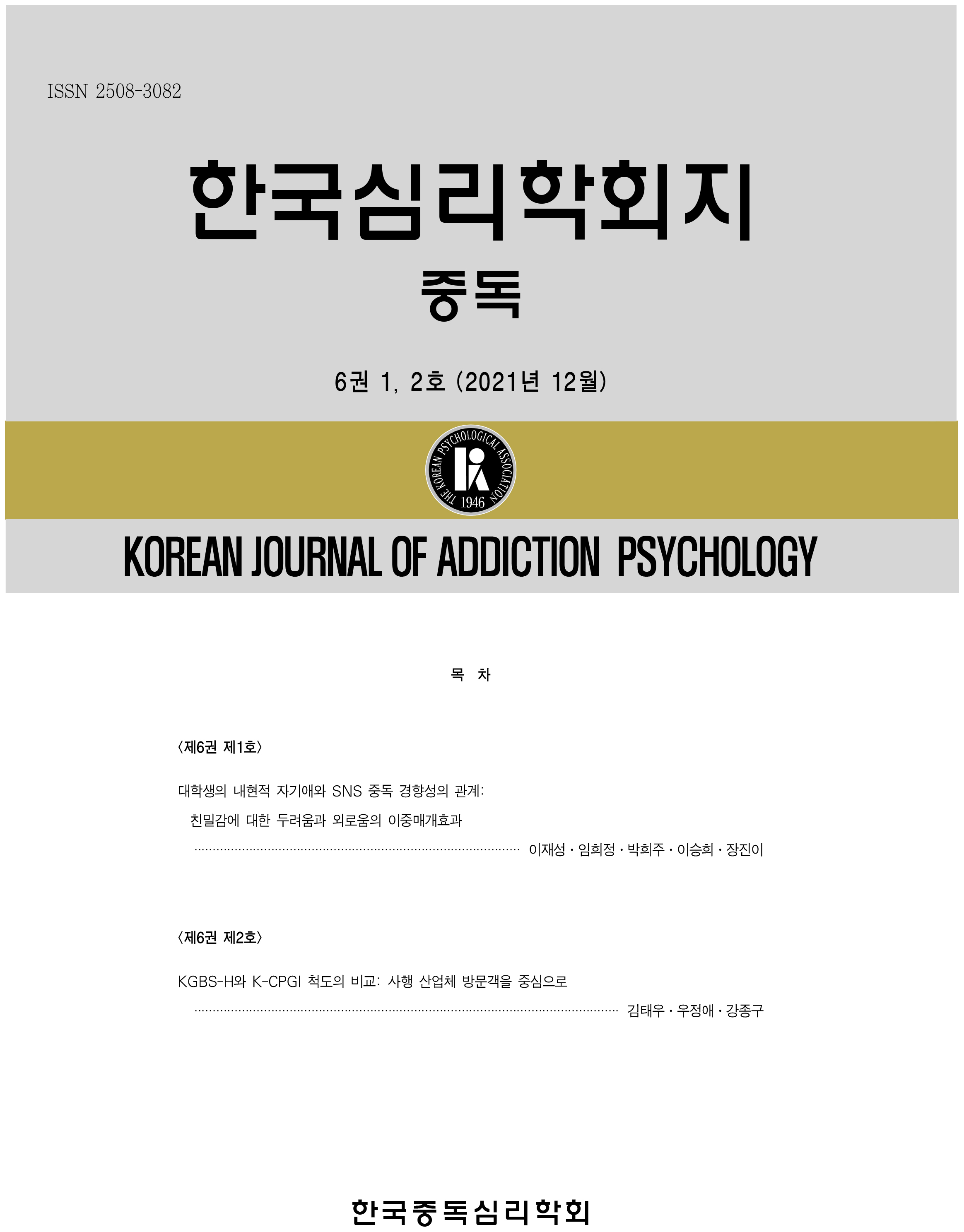Korean Journal of Addiction Psychology
- Log In/Sign Up
- P-ISSN2508-3082
 ISSN : 2508-3082
ISSN : 2508-3082
The relationships between Increased Alcohol Consumption in Disaster Victims, PTSD and Depression: Risk and Protective Factors

Abstract
Post-traumatic stress associated with disasters is a potential risk factor for increased alcohol concumption or alcohol abuse/dependence. Moreover, alcohol misuse is often comorbid with PTSD, depression, and other psychological disorders. Thus, this study examined whether alcohol use and increased alcohol consumption among disaster victims differ from control group and whether increased alcohol consumption is associated with psychological disorders using "Establishment of Disaster victim relief services" research data performed by the National Disaster Management Research Institute(NDMI). Moreover, it was also examined risk and protective factors for greater alcohol consumption among disaster victims. The result revealed that the rate of current alcohol use was higher in control group than in disaster victims. However, the rate of increased alcohol consumption was 4 times higher in disaster victims than controls. Moreover, increased alcohol consumption in control group was not related to depression, whereas it was associated with PTSD, depression, and alcohol abuse/dependence among disaster victims. Risk and protective factors that contribute to greater alcohol consumption were disaster-related conflicts and psychological resilience, respectively. The results suggest that early intervention following disasters that reduces disaster-related conflicts and increases psychological resilience skills may have substantial benefit in reducing alcohol misuse in the medium to long term.
- keywords
- increased alcohol consumption, PTSD, depression, disaster-related conflict, resilience
- Submission Date
- 2019-05-06
- Revised Date
- Accepted Date
- 2019-06-16
- Downloaded
- Viewed
- 0KCI Citations
- 0WOS Citations
